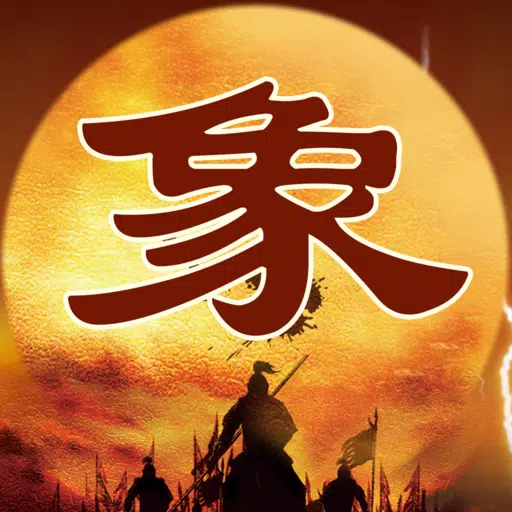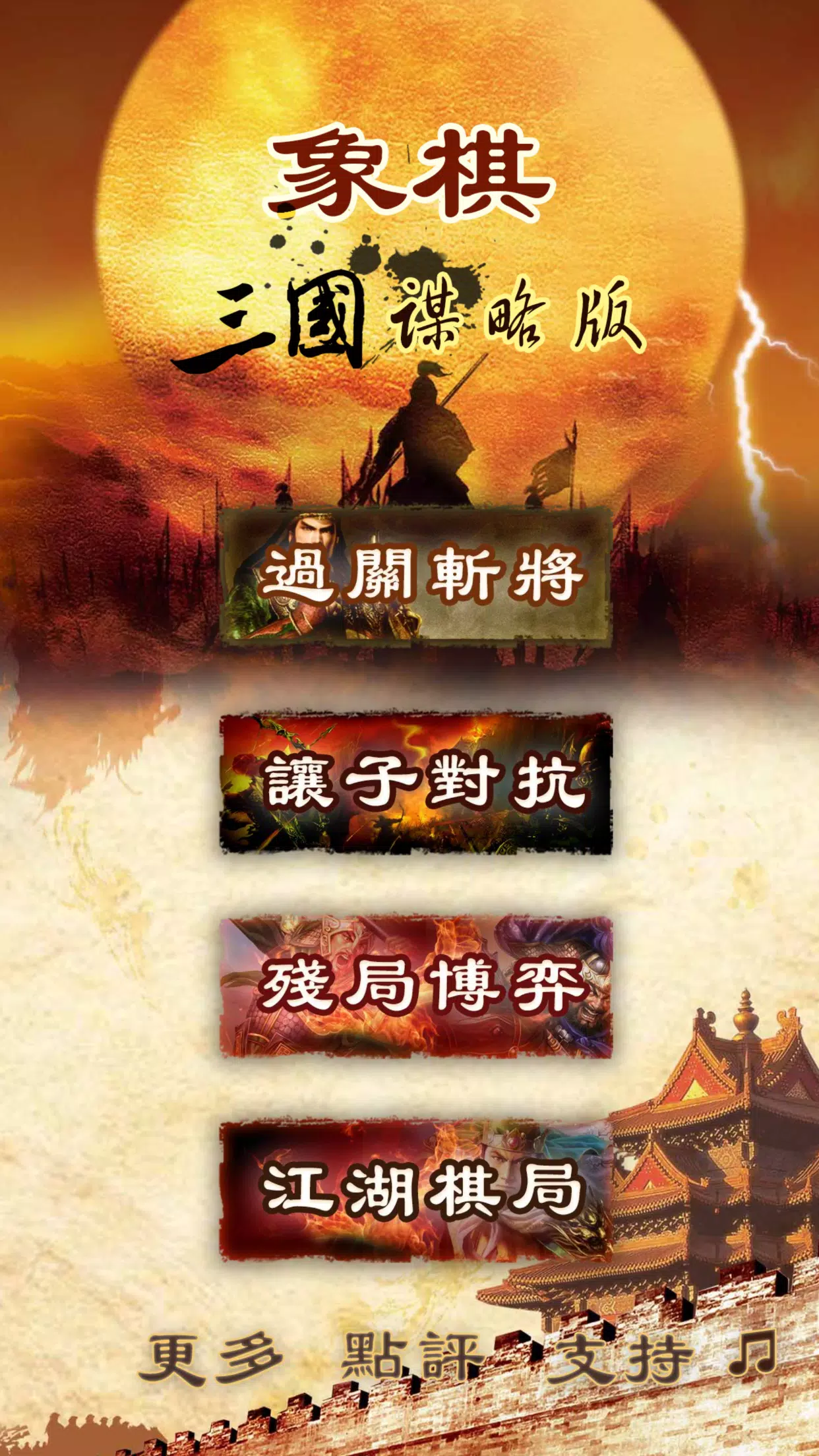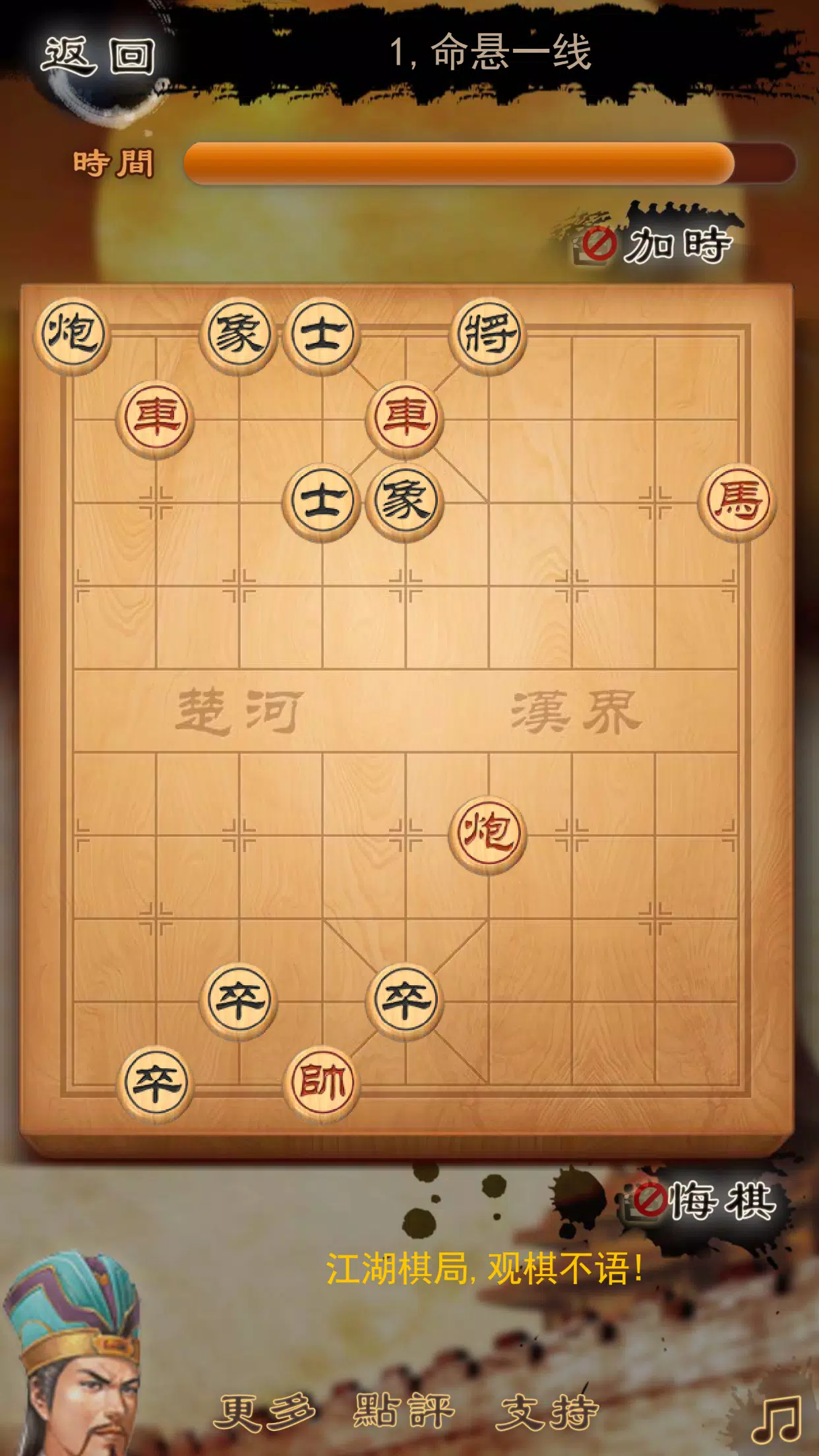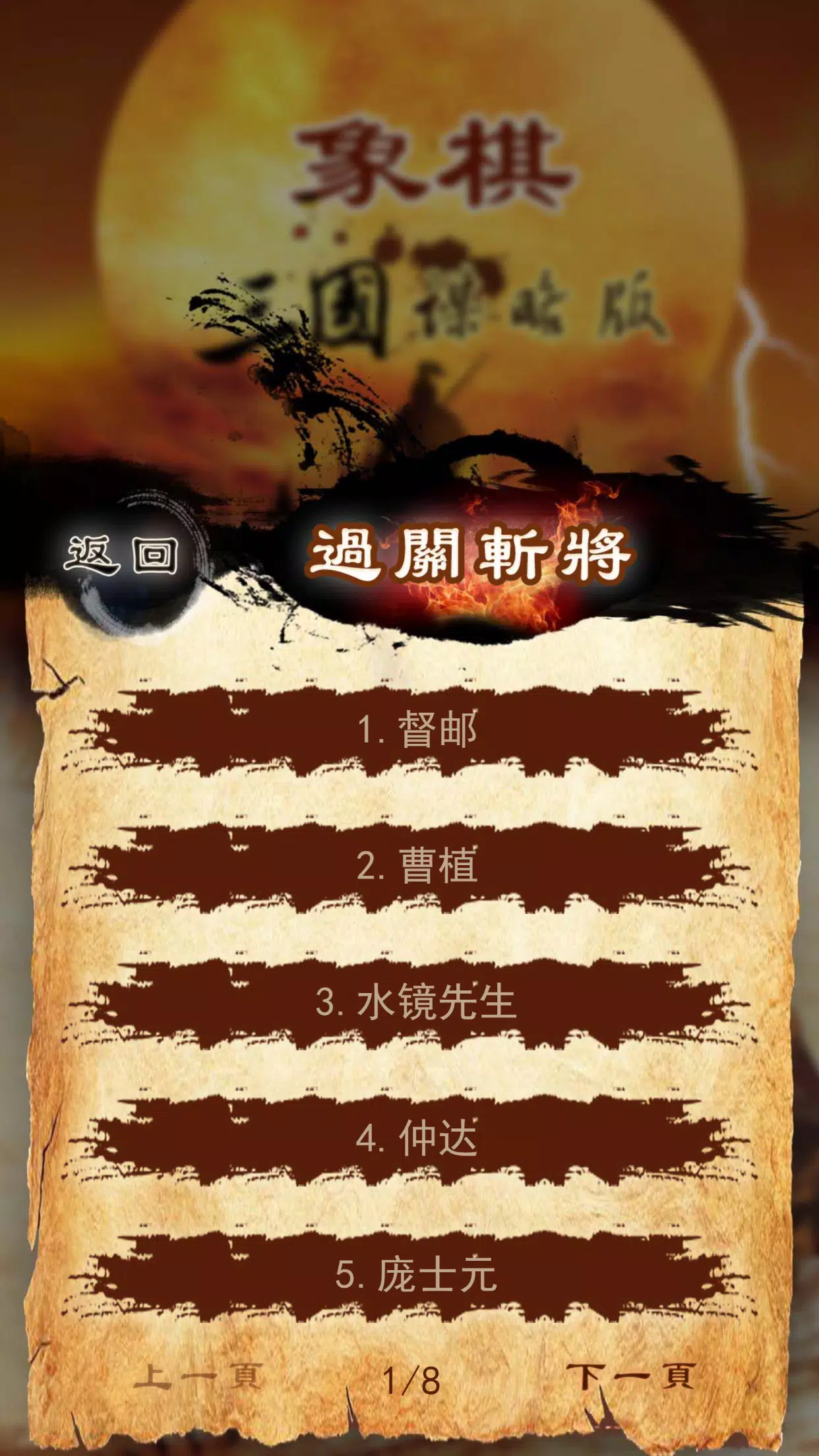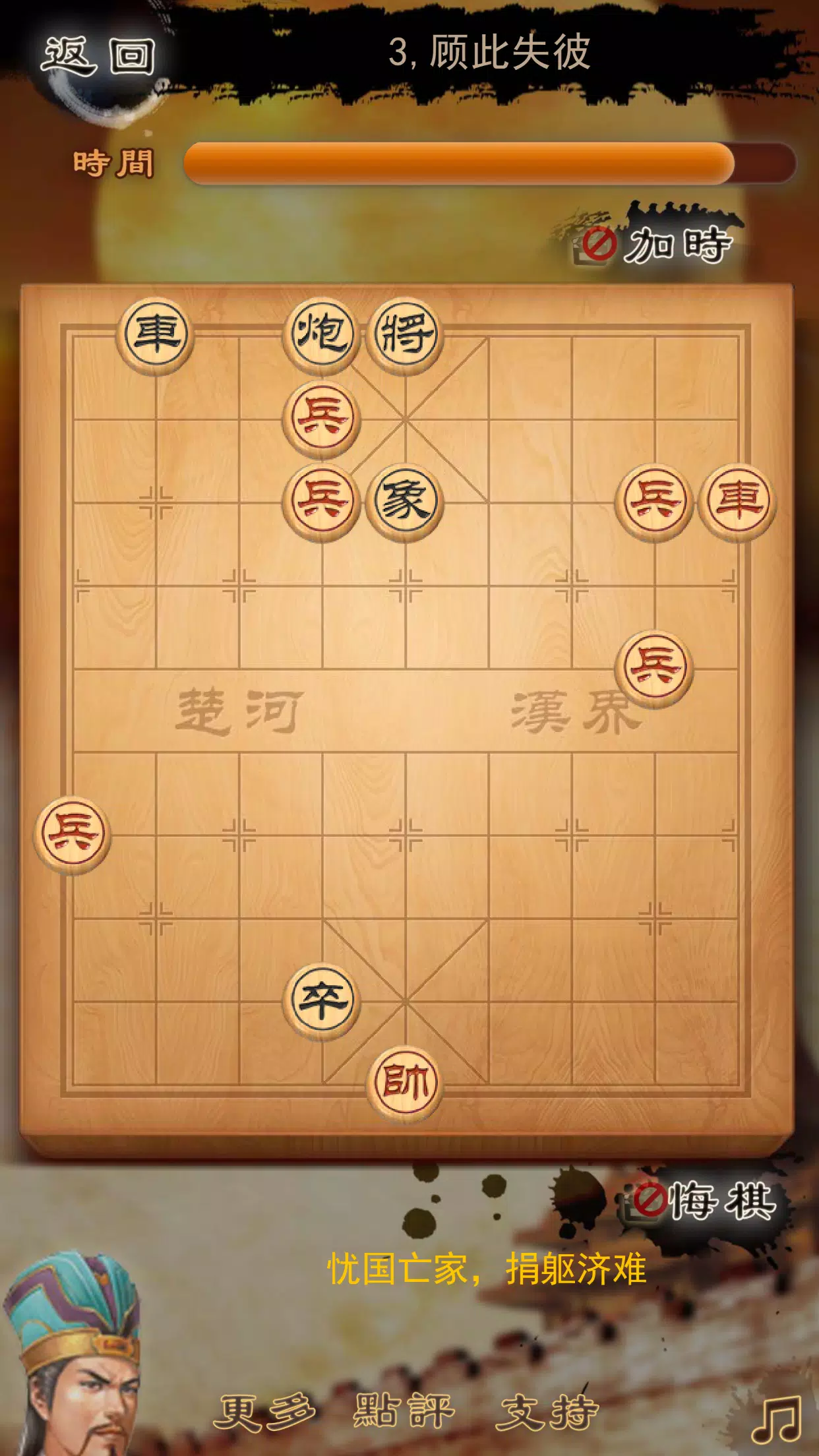Three Kingdoms chess:象棋
Imagine a chess game that masterfully blends the epic narrative of the Three Kingdoms with the strategic depth of Xiangqi, a traditional Chinese chess game. This unique fusion not only offers various gameplay modes but also allows players to conquer all levels, challenge legendary heroes, and swiftly master the intricacies of chess endgames. Xiangqi, originating from China, is a two-player strategy game with a rich history. Its simple yet engaging pieces have made it a beloved pastime across generations.
Chess Pieces
Xiangqi features thirty-two pieces, split evenly between red and black teams, with each team comprising sixteen pieces across seven distinct types. Here's a breakdown:
- Red Pieces: One handsome, two rooks, two horses, two cannons, two advisors (shi), two elephants (phase), and five soldiers.
- Black Pieces: One general (will), two rooks, two horses, two cannons, two advisors (shi), two elephants, and five pawns.
Key Pieces and Their Moves
Handsome/General (Shuai/Will)
The red side's leader is called "handsome," while the black side's is "general" or "will." These pieces are pivotal, as capturing them leads to victory. They are confined to the "nine palaces" and can move one square horizontally or vertically. Importantly, they cannot face each other directly on the same vertical line, as this results in an immediate loss for the moving player.
Advisors (Shi/Taxi)
The "shi" for the red side and "taxi" for the black side are also restricted to the nine palaces. They move diagonally within this area, one square at a time.
Elephants (Xiang/Phase)
The "phase" for red and "elephant" for black move diagonally two squares at a time, known as "flying the field." Their movement is limited to their half of the board, unable to cross the river. If a piece blocks the center of their path, they cannot move, a situation referred to as "blocking the elephant's eye."
Rook (Jū)
The rook is the most powerful piece, moving any number of squares along ranks or files, as long as no piece blocks its path. This ability to control up to seventeen points earns it the nickname "one rook equals ten pieces."
Cannon
The cannon moves like the rook when not capturing, but to capture, it must jump over exactly one piece, friend or foe, a move known as "firing over the screen" or "over the mountain."
Horse
The horse moves in an "L" shape, one square in one direction and then diagonally one square, known as "horse walking day." It can reach up to eight points around it, hence the phrase "eight directions of majesty." However, if another piece blocks its initial move, it cannot proceed, a situation called "tripping the horse's leg."
Soldiers/Pawns
The red "soldiers" and black "pawns" move forward one square at a time and cannot retreat. Before crossing the river, they cannot move sideways. After crossing, they gain the ability to move left or right, significantly increasing their power, leading to the saying "small pawns crossing the river can challenge a rook."
In Xiangqi, players alternate turns, embodying the strategic principles from Sun Tzu's "Art of War," such as "winning without fighting" and "subduing the enemy without battle." The game ends when one player checkmates or traps the opponent's general (handsome). The red side moves first, and the game continues until a win, loss, or draw is determined. Through the complex interplay of attack and defense, players enhance their cognitive skills, navigating the nuances of strategy and tactics inspired by the Three Kingdoms.
Three Kingdoms chess:象棋
Imagine a chess game that masterfully blends the epic narrative of the Three Kingdoms with the strategic depth of Xiangqi, a traditional Chinese chess game. This unique fusion not only offers various gameplay modes but also allows players to conquer all levels, challenge legendary heroes, and swiftly master the intricacies of chess endgames. Xiangqi, originating from China, is a two-player strategy game with a rich history. Its simple yet engaging pieces have made it a beloved pastime across generations.
Chess Pieces
Xiangqi features thirty-two pieces, split evenly between red and black teams, with each team comprising sixteen pieces across seven distinct types. Here's a breakdown:
- Red Pieces: One handsome, two rooks, two horses, two cannons, two advisors (shi), two elephants (phase), and five soldiers.
- Black Pieces: One general (will), two rooks, two horses, two cannons, two advisors (shi), two elephants, and five pawns.
Key Pieces and Their Moves
Handsome/General (Shuai/Will)
The red side's leader is called "handsome," while the black side's is "general" or "will." These pieces are pivotal, as capturing them leads to victory. They are confined to the "nine palaces" and can move one square horizontally or vertically. Importantly, they cannot face each other directly on the same vertical line, as this results in an immediate loss for the moving player.
Advisors (Shi/Taxi)
The "shi" for the red side and "taxi" for the black side are also restricted to the nine palaces. They move diagonally within this area, one square at a time.
Elephants (Xiang/Phase)
The "phase" for red and "elephant" for black move diagonally two squares at a time, known as "flying the field." Their movement is limited to their half of the board, unable to cross the river. If a piece blocks the center of their path, they cannot move, a situation referred to as "blocking the elephant's eye."
Rook (Jū)
The rook is the most powerful piece, moving any number of squares along ranks or files, as long as no piece blocks its path. This ability to control up to seventeen points earns it the nickname "one rook equals ten pieces."
Cannon
The cannon moves like the rook when not capturing, but to capture, it must jump over exactly one piece, friend or foe, a move known as "firing over the screen" or "over the mountain."
Horse
The horse moves in an "L" shape, one square in one direction and then diagonally one square, known as "horse walking day." It can reach up to eight points around it, hence the phrase "eight directions of majesty." However, if another piece blocks its initial move, it cannot proceed, a situation called "tripping the horse's leg."
Soldiers/Pawns
The red "soldiers" and black "pawns" move forward one square at a time and cannot retreat. Before crossing the river, they cannot move sideways. After crossing, they gain the ability to move left or right, significantly increasing their power, leading to the saying "small pawns crossing the river can challenge a rook."
In Xiangqi, players alternate turns, embodying the strategic principles from Sun Tzu's "Art of War," such as "winning without fighting" and "subduing the enemy without battle." The game ends when one player checkmates or traps the opponent's general (handsome). The red side moves first, and the game continues until a win, loss, or draw is determined. Through the complex interplay of attack and defense, players enhance their cognitive skills, navigating the nuances of strategy and tactics inspired by the Three Kingdoms.

